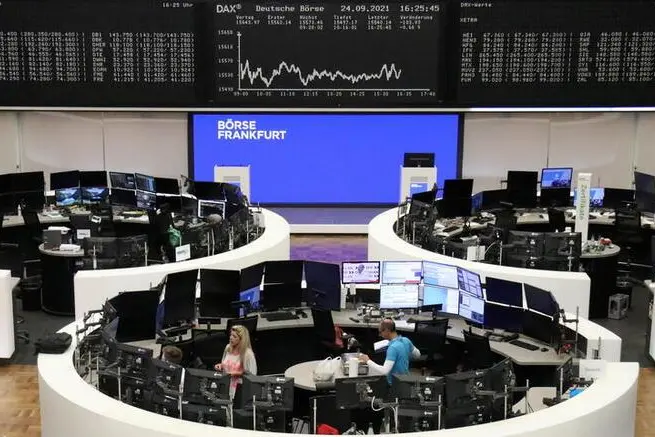PHOTO
FRANKFURT - A backlog of incomplete deals and an uncertain economic outlook mean German dealmakers are predicting a quiet first quarter and a relative fee famine until 2025 in Europe's biggest economy.
Financial and legal advisers point to a darker macroeconomic outlook for Germany, which saw four deals totalling $113 million in the first 10 days of 2024, compared with 45 deals worth $876 million in the same period last year, Dealogic data shows.
Europe too has made a slower start, with 71 deals totalling $2.2 billion, down from 375 worth almost $9 billion in the same period of 2023.
"The economic challenges facing Germany are likely to lead to a quieter Q1," said Bernd Egbers, partner at Astera Legal, adding that private equity funds and companies are likely to be more cautious about making big acquisitions.
In signs of the mounting challenges for Germany, farmers this week staged nationwide protests, coupled with disruptive rail strikes across the country, and corporate insolvencies increasing significantly at the end of 2023.
Late last year, the German government froze major spending pledges focused on green initiatives and industry after a constitutional court ruling on unused pandemic emergency funds blew a 60 billion euro ($65 billion) hole in its finances.
This hit investor confidence, with business morale worsening in December, according to the Ifo institute. German industrial production also fell unexpectedly in November, the sixth monthly decline in a row.
"Entering 2024 with such low M&A volumes, we do not anticipate so much more activity in the coming year, with a pick-up to take greater effect in 2025," said Rainer Langel, Head of Europe, Middle East and Africa, at Macquarie Capital.
This comes as dealmakers globally had expected a pick-up in activity as conditions improved. In the U.S. so far this year, deal value amounted to $56 billion, boosted by activity in the healthcare sector and more than double the amount it saw at the start of 2023 with $24 billion, according to Dealogic data.
Germany led M&A by value for continental Europe in 2023, with $91 billion of transactions, Dealogic data shows. However, that was the lowest since 2015. And last year globally M&A volumes fell to their lowest levels in a decade.
For bankers and other advisers, that all means lower fees.
Net investment banking revenue from M&A in Germany was 159 million euros in the fourth quarter of 2023, down 95% versus the same period the year prior, Dealogic data shows.
And since the pandemic, transactions have taken longer, leading to longer periods before they close, advisers say.
"While there will be more activity in 2024, the gap between signing and closing a deal takes time, so many of these deals will only be finished in 2025," said Langel.
As ever with M&A, fortunes could change quickly if a series of deals emerges. Late last year, Adnoc raised a preliminary offer for German chemicals company Covestro, valuing it at 11.3 billion euros ($12.38 billion).
The private equity backers of pharmaceuticals company Stada are preparing for an initial public offering or sale that could value it at ten billion euros ($11 billion), while Bayer has said it is considering splitting its consumer health or crop science divisions.
Cash-rich private equity firms with deep contact books could be the ones to get M&A going again, some dealmakers said.
"(They) have a history of adapting to changing economic conditions, and based on their experience they are likely to find ways to continue pursuing deals even in a challenging environment," said Egbers.
Like others, Egbers is confident of a pick-up in deal activity during the second half of the year if the economy stabilises, inflation slows and interest rates fall. ($1 = 0.9130 euros)
(Reporting by Emma-Victoria Farr; Editing by Anousha Sakoui and Alexander Smith)





















